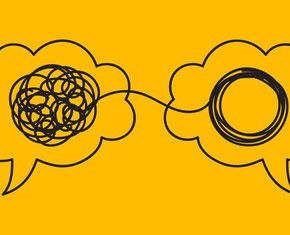The views expressed in our content reflect individual perspectives and do not represent the authoritative views of the Baha'i Faith.
In the global West, we often associate innovation with successful entrepreneurs and traditional Western education – but do these associations really drive civilization’s progress?
As a college student seeking to understand the truth of the world around me and make a real impact, I find it helpful to unpack the underlying ideas college imparts. I’ve begun to question this basic one: the culture of celebrity we’ve constructed around innovation and successful entrepreneurship.
I’ve noticed that young professionals obsess about accomplished billionaires, going as far as to imitate their dress style, their sleep schedule, and constantly taking cues from their biographies to make their own choices in life. The goal, it seems, is to become so affluent that you can join the top 1% and then start making changes in the world. The misleading myth tells us that then you’ve “made it,” and only then can you effect change.
Nothing could be farther from the truth.
There is something inherently wrong with the belief that becoming a billionaire confers the one metric for success – that being a billionaire somehow brings divine wisdom that we should hang onto word for word.
Yes, we can certainly learn many things from the innovators, entrepreneurs and history-makers of the world – but solely material success represents a combination of many factors, including luck, timing, privilege and inherited affluence. Also, most of the entrepreneurs we hear about have exactly the same race, gender, and industry background, which means we get a very limited vision of the world if we only listen to their wisdom.
You don’t have to have massive wealth to bring about change in the world. In fact, most of the great change agents had little or no wealth. Also, that level of notoriety often actually holds people back, as the downsides can overwhelm the benefits:
O ye that pride yourselves on mortal riches! Know ye in truth that wealth is a mighty barrier between the seeker and his desire, the lover and his beloved. The rich, but for a few, shall in no wise attain the court of His presence nor enter the city of content and resignation. – Baha’u’llah, Persian Hidden Words, no. 53
Worshipping entrepreneurs tends to lead toward things that “begin with words and end with words” more than actual change — an often simplistic, atavistic vision of the world that reduces people to individualism and their business choices. The grave ills of the world exist right now because we’ve prioritized money and fame over wisdom and compassion. What if we started learning from a more diverse pool of people?
I also fear that this worship of wealth can breed another obstacle to the open, learning mind: seeing Westernized material education as a status symbol.
I go to an engineering school that has made great strides in trying to instill students with a more global vision of the world. Most students carry out projects overseas, all majors expose students to an ethical component, and even classes that tackle hard engineering topics, like thermodynamics, encourage students to face the ethical implications of their choices, and explore options to ensure that their choices make a positive impact on people and the environment.
But even in an institution so focused on progress and global thinking, I find that professors and students alike will often unconsciously push the narrative that we — as engineers in a Western country with access to more material resources — somehow know better solutions to problems across the planet than the people who live in those places.
The Universal House of Justice, the democratically-elected administrative body of the Baha’i Faith, described what truly effective social action can look like, with a very different vision from the usual image we have of humanitarian action:
… while social action may involve the provision of goods and services in some form, its primary concern must be to build capacity within a given population to participate in creating a better world. Social change is not a project that one group of people carries out for the benefit of another. – The Universal House of Justice, April 2010, p. 10.
The mistaken idea that Western education promotes of the “less-fortunate” – some disadvantaged populations in less materially affluent countries, who passively wait for the “educated” to rescue them – represents the most toxic of ideologies espoused by many educational institutions. It creates a very distinct “us” and “them,” where we believe ourselves to be more informed about problems in other communities, even if this is only our first job out of college.
As one of my friends from Africa once told me “Charity is just a new form of colonization.”
Of course, not all international humanitarian efforts have negative effects – some have had tremendous success and have helped people survive and thrive. But we often hear less from the recipients of those efforts than we do from the outsiders who spend a week carrying them out, which skews our perspective on what worked and what didn’t, and erases the voices of those who actually receive the aid.
I love my school, and I appreciate its efforts to widen students’ perspectives. But I would like to see a higher degree of introspection, not only from the institution itself, but from the students, to unpack their own assumptions and the images we absorb from the media.
We could take a big step in this direction by realizing that neither we, nor the institution that teaches us, can possibly know all the answers. It takes true humility, as outlined by the Baha’i teachings, to discover new pathways to progress:
He must never seek to exalt himself above anyone, must wash away from the tablet of his heart every trace of pride and vainglory, must cling unto patience and resignation, observe silence, and refrain from idle talk. – Baha’u’llah, The Book of Certitude, p. 193.
To help develop that sense of humility, we can all ask questions as we go about our daily assignments. How many books, papers or talks on foreign communities are we exposed to in college that aren’t written by Western writers? More importantly, what can we do to make sure we see and attempt to understand those non-Western perspectives?
In the next article of this series, we’ll unpack college’s take on teamwork, how individualism still sneaks in in subtle ways, and how we can acquire a real team spirit.
















Comments
Sign in or create an account
Continue with Googleor